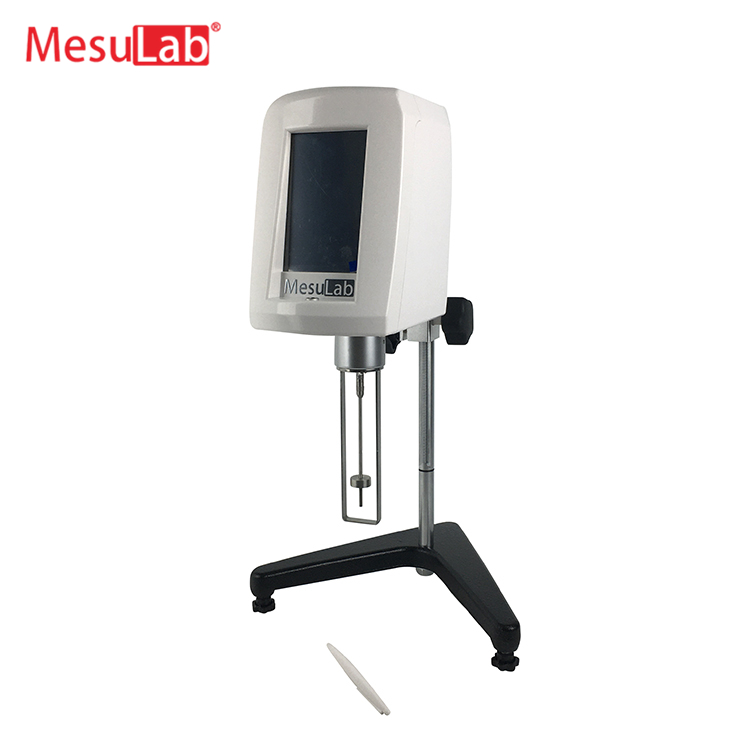Rotating viscometer is a key tool for measuring viscosity.
Rotary viscometer is an instrument widely used in chemistry, medicine, food and other fields to measure the viscosity of substances. Its principle is based on the flow behavior of substances under external shear force, and the viscosity value is calculated by the relative motion between the rotating rotor and the probe. This paper will introduce the working principle, application fields and matters needing attention in use.
The working principle of rotary viscometer comes from Newton's viscosity law, which points out that the viscosity of a substance is directly proportional to the applied shear force. In the rotary viscometer, the sample is placed in a container and shear force is applied by rotating the rotor. As the rotor rotates, the sample begins to flow, and the probe on the rotor measures the flow speed. According to the measured parameters such as rotational speed, rotor shape and container geometry, the viscosity of the sample can be calculated.
Rotational viscometer has been widely used in many fields. In the field of chemistry, it can be used to measure the viscosity of various liquids and help determine the characteristics and quality of materials. In the field of medicine, it is helpful to evaluate the stability, rheological properties and suitable storage conditions of drugs. In the food industry, it can be used to measure the viscosity of various liquid food raw materials to ensure the quality and stability of products.
Pay attention to the following points when using. First, choose the appropriate combination of rotor and container to adapt to the characteristics of the sample. The viscosity range and flow characteristics of different samples may be different, so it needs to be selected according to the specific situation. Secondly, ensure the normal operation of the instrument and carry out accurate calibration. Regular inspection and calibration are key steps to ensure accurate and reliable measurement results. Finally, follow the operating instructions and safety regulations to avoid potential dangers and damage to the instrument.
In a word, the rotary viscometer is an important tool to measure the viscosity of substances, and it calculates the viscosity value by measuring the flow behavior of samples under the applied shear force. It plays a vital role in chemistry, medicine, food and other fields, helping scientists and engineers understand the rheological properties and properties of materials. Correct selection of instrument configuration, accurate calibration and compliance with operating procedures are the key elements to ensure accurate and reliable measurement results.

